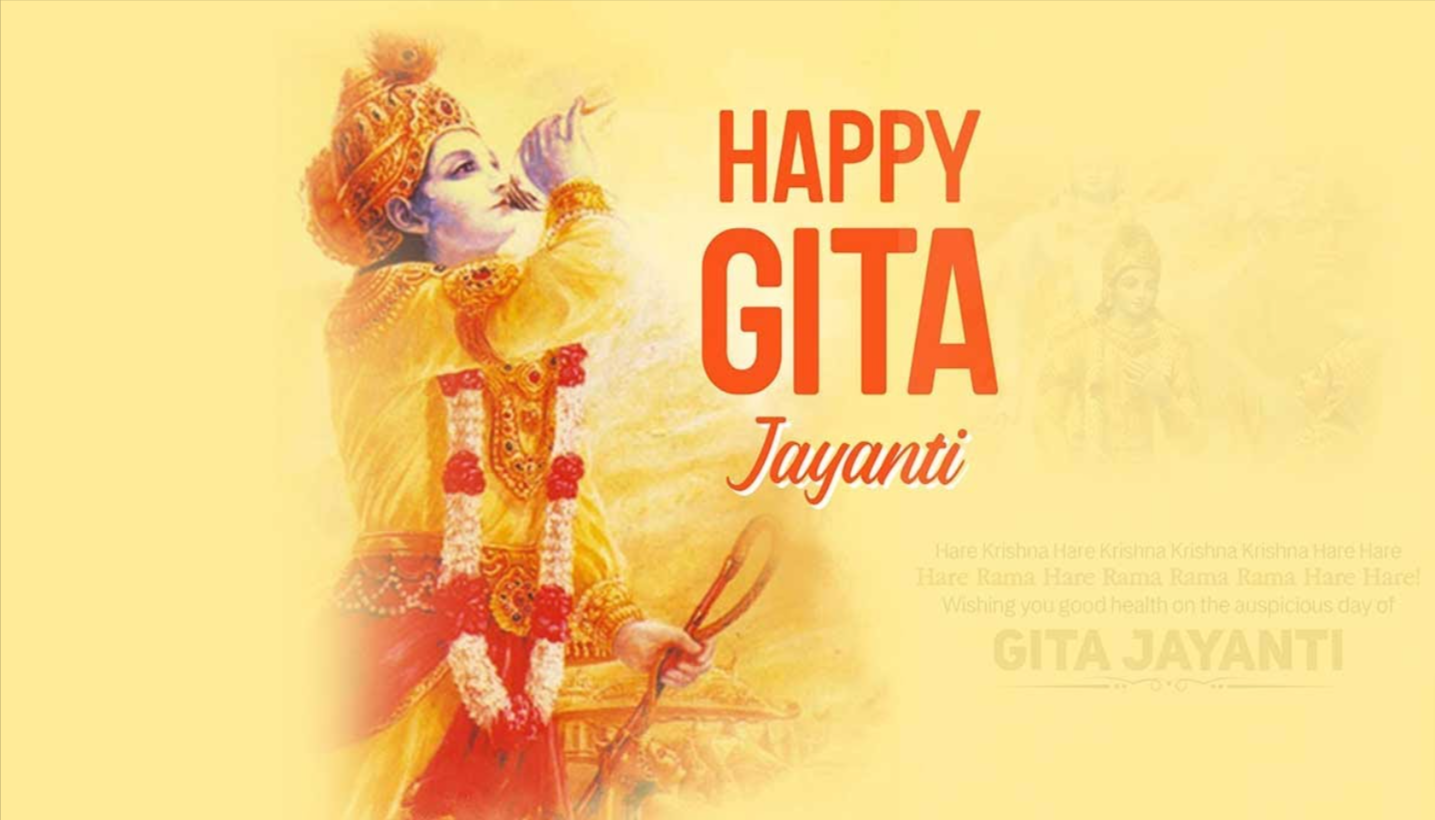Gita Jayanti is observed annually on the Ekadashi of the Shukla Paksha in the month of Margashirsha, also known as Mokshada Ekadashi.
Gita Jayanti 2024: Date, Shubh Muhurat, and Significance
According to religious traditions, it was on this Ekadashi that Lord Krishna shared the sacred teachings of the Bhagavad Gita with Arjuna. To honor this momentous event, Gita Jayanti is celebrated each year. The Bhagavad Gita holds immense importance in Sanatan Dharma, and it is the only scripture whose Jayanti is observed.
The Bhagavad Gita is a dialogue between Arjuna, the Pandava prince, and his mentor, Lord Krishna. Comprising 700 verses, it covers a wide range of life’s facets and offers guidance on how to live meaningfully. Throughout their conversation, Lord Krishna imparts profound life lessons to Arjuna, addressing topics such as action (karma), knowledge (jnana), and devotion (bhakti).
Gita Jayanti 2024: Date and Time
Gita Jayanti is celebrated every year on the Ekadashi of the Shukla Paksha during the Margashirsha month, also known as Mokshada Ekadashi.
- Ekadashi Begins: 11th December 2024 at 03:42 AM
- Ekadashi Ends: 12th December 2024 at 01:09 AM
Following the Udayatithi, Gita Jayanti will be observed on 11th December 2024.
Importance of Gita Jayanti
Gita Jayanti serves as a reminder to contemplate and internalize the powerful teachings of the Bhagavad Gita. Lord Krishna’s wisdom, shared with Arjuna on the battlefield of Kurukshetra, transcends time and continues to guide humanity. These teachings are as meaningful today as they were in ancient times. The 18 chapters of the Gita provide valuable insights into how to succeed in every area of life, and it is this universal truth that we honor on this special day.
Ways Gita Jayanti is Observed
Gita Jayanti is celebrated in various ways, influenced by local customs, community traditions, and personal practices. Here are some of the common ways people observe this sacred day:
1. Chanting the Bhagavad Gita
On Gita Jayanti, people come together at temples, homes, or other spiritual spaces to chant passages from the Bhagavad Gita. Whether in large groups or smaller circles, the act of reciting these sacred verses is seen as a way to invite peace, spiritual growth, and good fortune into their lives.
2. Spiritual Talks and Discussions
On Gita Jayanti, spiritual leaders and scholars often hold lectures on the Bhagavad Gita, explaining how its teachings remain relevant in the modern world. These talks are typically followed by interactive Q&A sessions, allowing devotees to deepen their understanding and gain further insights into the wisdom of the Gita.
3. Krishna Puja and Offerings
On Gita Jayanti, numerous devotees perform a special puja for Lord Krishna as a mark of devotion. The ceremony often includes presenting offerings like flowers, fruits, and incense, accompanied by heartfelt prayers. These acts are meant to invoke Krishna’s blessings for spiritual progress and personal fulfillment.
4. Quiet Reflection and Meditation
On Gita Jayanti, individuals often dedicate time to pray, meditate, and reflect deeply on the teachings of the Gita. It’s a chance to think about how its lessons can be incorporated into daily life. This day serves as an opportunity for personal introspection, helping people reconnect with their faith and strengthen their spiritual journey.
5. Acts of Charity and Kindness
Inspired by the teachings of the Gita, which emphasize selflessness and service to others, many people choose to engage in charitable activities on this day. This often includes feeding the hungry, donating clothes, or supporting educational initiatives, as a way to give back to society and embody the values of compassion and generosity taught in the scripture.
Final Thoughts
Gita Jayanti honors the wisdom Lord Krishna shared with Arjuna on the battlefield of Mahabharata. It provides spiritual insights, moral guidance, and principles of righteous living. On December 11, 2024, let us pledge to embrace these teachings, which continue to guide millions towards a more meaningful and harmonious life.
